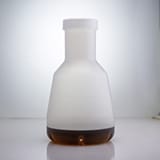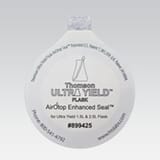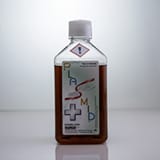Title
Application of Assisted Design of Antibody and Protein Therapeutics (ADAPT) improves efficacy of a Clostridium difficile toxin A singledomain antibody
Description
In this study, we examined the applicability of the ADAPT platform to sdAb affinity maturation while continuing our efforts towards improved therapies for Clostridium difficile infections (CDI). Treatment of CDI with antibiotics can result in recurrent forms of this highly common and costly hospital-acquired disease. With the emergence of antibiot...
Application of Assisted Design of Antibody and Protein Therapeutics (ADAPT) improves efficacy of a Clostridium difficile toxin A singledomain antibody
1Human Health Therapeutics Research Centre, National Research Council Canada, 6100 Royalmount Avenue, Montreal, Quebec, H4P 2R2, Canada.
2Institute of Parasitology, McGill University, 21111 Lakeshore Road, Sainte-Anne-de-Bellevue, Quebec, H9X 3V9, Canada.
3Human Health Therapeutics Research Centre, National Research Council Canada, 100 Sussex Drive, Ottawa, Ontario, K1A 0R6, Canada.
4Department of Biochemistry, Microbiology and Immunology, University of Ottawa, 451 Smyth Road, Ottawa, Ontario, K1H 8M5, Canada.
5Department of Biochemistry, McGill University, 3655 Promenade Sir William Osler, Montreal, Quebec, H3G 1Y6, Canada.
In this study, we examined the applicability of the ADAPT platform to sdAb affinity maturation while continuing our efforts towards improved therapies for Clostridium difficile infections (CDI). Treatment of CDI with antibiotics can result in recurrent forms of this highly common and costly hospital-acquired disease. With the emergence of antibiotic-resistant and hypervirulent C. difficile strains, CDI-associated health-care costs and morbidity rates have prompted alternative treatment modalities including vaccines, fecal transplantation, probiotics and antibody-based immunotherapy. With regard to antibody-based immunotherapy, a number of mAbs targeting and neutralizing C. difficile virulence-factor toxins A and B (TcdA and TcdB) have been discovered, with the anti-TcdB mAb bezlotoxumab recently passing a Phase III clinical trial and obtaining FDA-approval. SdAbs are also attractive immunotherapeutics, as they present several advantages over mAbs, primarily in terms of ability to access cryptic and concave epitopes, increased stabilities, high modularity and smaller size, thus potentially leading to excellent efficacy, pharmacokinetics and developability profiles.
Related Application Notes
Improved DNA Protocol for E.coli with Plasmid+® Media
Plasmid+® liquid media is an enriched media specifically designed for plasmid DNA production. Plasmid+® supports much h...
See Application Note

